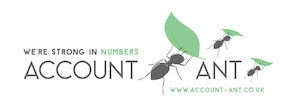Anyone who knows James and I will know that there was a time when we’d relax on a Sunday morning and watch a horror movie or two…
This was obviously pre-children! This blog post is somewhat inspired by those days 😊
Let me tell you a little story about… John the Joiner.
John the Joiner has been a sole trader for nearly a decade. His business is steady away but the bookkeeping is the bane of his existence. He must force himself to sit down and do what’s necessary in his Business.

Why is that?
Managing your own Bookkeeping and Accounts can seem like an obvious money-saving task for a small business.
However, it’s not always the best idea!!
You might think I am biased but here’s a few little reasons why…
Let’s use John as an example:
John approached Rachel at Account-ant totally frazzled and wanting a break from it all. He wanted to go to work, make his money, and then just forget about it when he gets home. Weekends became paperwork days – not days with his family, which he craved!
He’d heard a few radio ads from Quickbook which extolled its virtues and apparent godlike ability to make having an Accountant on your side, completely unnecessary.
However, John got himself in a bit of a muddle!!
He didn’t have the time to go through the training.
He wasn’t an Accountant or a Bookkeeper.
John found out that trawling through all those numbers, transactions, tabs, tools and tech ended up costing him more at his standard hourly rate, than if he had engaged with a good accountant in the first place!
Wasted time. Wasted money. Wasted energy!
Energy better invested in growing your Business and celebrating your Clients!
Here are the top 4 mistakes we, as Accountants see when a sole trader comes to us.
- They’ve either already completed their self-assessment or come to us very close to the deadline and asked for help.
- Not distinguishing between capital and revenue expenditure.
- Not utilising your tax-free allowance and the small amount of flexibility with your annual investment allowance.
- Getting caught out on the payment on account when completing your Tax return in January..
Capital vs Revenue Expenditure
Revenue expenditure is the day to day costs of running a business such as travel, rent and rates and professional fees (like accountancy costs 😉).
Capital expenses are big purchases that will be used recurrently over the years like laptop, machinery, or a vehicle.
These are treated differently in the accounts. If you get confused, you could end up paying too much tax! And no one likes that!!!
Your tax-free allowance is USE IT, OR LOSE IT. So only claim enough Annual Investment Allowance to bring your profit down to the equivalent of the tax-free allowance, and carry the balance forward into a pool to claim the Writing Down Allowance the following and subsequent years.
Doing this will save you overpaying tax in the following and subsequent years.
If “Annual Investment Allowance” and “Writing Down Allowance” has sent you into a bit of a spin, don’t worry – that’s what Accountant’s are for!
Perhaps that’s even another blog post idea 😊
January Self Assessment completion .
It’s January, you’ve put your self assessment through the Government Gateway and HMRC have automagically worked out that the tax due on your profits is £4,000.
But HMRC are asking for £5,500 now and another £1,500 at the end of July…
duh duh duh…
You have been smacked in the chops by HMRC’s Payment on Account requirement!!
If you’ve read my blogs before then you will know that if your tax bill is over £1,000 then HMRC will ask for 50% of the estimated bill for the current year at the end of January, and the other 50% at the end of July; just after the current tax year finishes.
You’re now in shock because you thought that submitting your tax return in January would be done and dusted, leaving you to pay your next tax bill in January the following year.
Nope…
And now you have to scrape the funds together to pay your tax bill earlier than expected!!
Set a reminder for 6th April each year and get that tax return in – pronto! Plus if you are due a refund, they will process it within days. So why wait?!
The Payment on Account shocker is mainly an issue when you first get caught out by the Payment on Account, and it does balance out eventually. But it’s still a shock to the system when it happens!
Hopefully this little blog post has not scared you too much. It’s not even Halloween! If it has raised any concerns at all, please do get in contact. Do not suffer in silence!
p.s. If you wondering how John is now. He’s fine. His accounts are tidy and we are ship shape and Bristol fashion.

